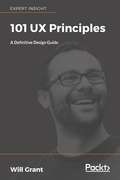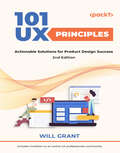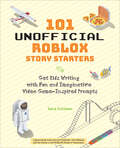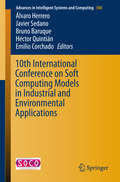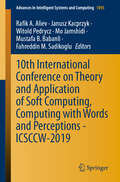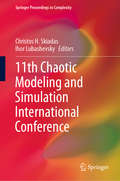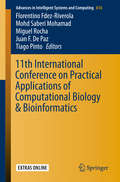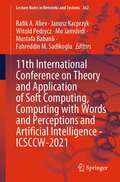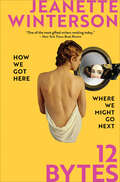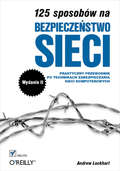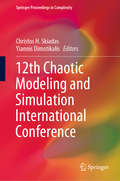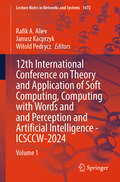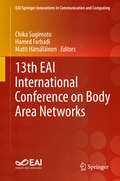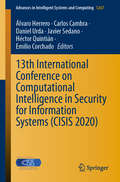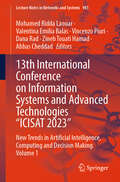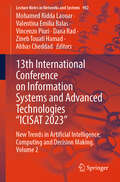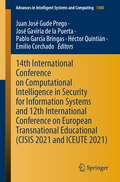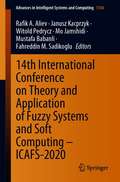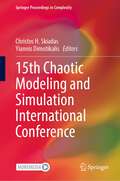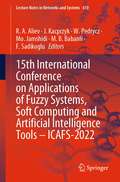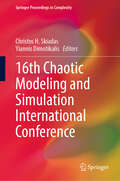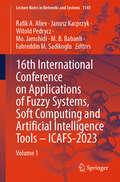- Table View
- List View
101 UX Principles: A Definitive Design Guide
by Will GrantLearn from the opinions of a UX expert, evaluate your own design principles, and avoid common mistakes.Key FeaturesHear insights from an author who was trained by the Nielsen Norman GroupBrowse over 20 years of collected UX insightsAccept or reject 101 thought-provoking opinions on designChallenge your own ideas on UXBook DescriptionThere are countless books about designing for the web. They all give multiple routes and options to solving design challenges. Many of them are plain wrong. This has led to an entire generation of designers failing to make interfaces that are usable, software that is intuitive, and products that normal people can understand. 101 UX Principles changes that, with 101 ways to solve 101 UX problems clearly and single-mindedly.The 101 principles are opinionated. They’ll rub some designers up the wrong way, but these principles are rooted in 20 years of building for the web. They’re not based on theory - they’re based on practice. Simply put, they’ve been proven to work at scale. There’s no arguing with that.Following in the footsteps of Jakob Nielsen and Don Norman, this book is the go-to manual for UX professionals, covering everything from passwords, to planning the user journey. Build a deeper understanding of accessible design and implement tried-and-tested strategies in your company. What you will learnUse typography well to ensure that text is readableDesign controls to streamline interactionCreate navigation which makes content make senseConvey information with consistent iconographyManage user input effectivelyRepresent progress to the userProvide interfaces that work for users with visual or motion impairmentsUnderstand and respond to user expectationsWho this book is forThis book is for UX professionals (freelance or in-house) looking for shortcuts to making software that users intuitively know how to use across web, desktop, and mobile.
101 UX Principles: Actionable Solutions for Product Design Success, 2nd Edition
by Will GrantImprove user experience by avoiding common frustrations and focusing on what mattersBook DescriptionDesign is everywhere. Take a look around you right now and consider the products and services we use every day. You'll notice that our computer and phone operating systems, our web browsers, and the apps we use to work, order food, socialize and even date have been designed by UX specialists to offer you the best experiences when using their products and services.Of course, not all online experiences are designed with our best interests in mind. That's exactly why UX design is such an exciting and rewarding field—by learning the logic behind what people engage with and implementing it in your UX work, you can craft intuitive, accessible, and highly functional designs for your digital products.The 2nd edition of 101 UX Principles is the perfect companion when working on digital projects and making the right decisions for your users. From landing pages and checkout basket UIs to startup launch products and enterprise software solutions, a rich user experience design will maximize the success of your product.The book includes an exclusive invitation to join an online UX designers' community, where you can read the book alongside peers and other UX designers, and participate in various challenges and discussions with the author. See you there!Endorsements"This updated version of 101 UX Principles is a delight. Thoroughly revised, this edition includes great points from the earlier edition, offers some updated examples, and provides new examples of solid UX principles. Theory goes into practice with examples that we can all relate to. The author says this book is a 'shortcut to success' for less experienced designers and a challenge to accepted thinking for seasoned UX professionals. It is that, yes, and it is so much more. It's an educational and fun provocation to look at the world of UX differently – solidly from the user's point of view."—Elizabeth Churchill, Director of User Experience, Google"They say UX is liquid - you can't pin it down. Well, they haven't read this book. In a series of short, direct lessons, this book lays out the fundamental principles of good user experience design. Complete with case studies, a record of personal experience, and visual examples, Grant makes it clear why these techniques have found their way into the canon of UX best practices. This is a phenomenal reference guide as you set out on your UX journey or even if you've been on it for many years."—Jeff Gothelf, Author of Lean UXSneak a peek at some of the new and updated principles in this UX design book:Work with user expectations, not against themMake interactive elements obvious and discoverableOptimize your interface for mobileStreamline creating and entering passwordsRespect users' time and effort in your FormsUse animation with care in user interfacesHow to handle destructive user actionsChatbots are usually a bad ideaUse A/B testing to test your ideasLet users give feedback, but don't hassle themMake it clear to users if they're joining or signing-inOnly use modal views for blocking actionsComplexity can be good for some usersWho this book is forThis book is a distillation of Will's 20+ years of experience in the form of successful design principles to help early career UX designers learn the ropes, and provide experienced professionals with new ideas when building their products.UX/UI designers, product managers, entrepreneurs, aspiring strategists, and anyone creating a digital product, service or a campaign will find this book extremely useful.
101 Unofficial Roblox Story Starters: Get Kids Writing with Fun and Imaginative Video Game-Inspired Prompts
by Sara ColemanWrite imaginative and awesome stories with prompts inspired by Roblox!Elementary-age kids will learn just how fun writing can be with this collection of 101 story starters, all based on their favorite video game. This book will provide prompts paired with blank lines for journaling, so everything needed to jumpstart the writing process is all in one place. Plus, with a friendly introduction on how to use the book and begin story writing, kids&’ creativity will be flowing in no time. Kids will enjoy hours of screenless activity time thanks to the sometimes hilarious sometimes fascinating story prompts based on the most popular Roblox games! Plus, they'll be able to keep up their writing skills and prevent summer learning loss in a way that's fun, funny, and creative.
10th International Conference on Soft Computing Models in Industrial and Environmental Applications (Advances in Intelligent Systems and Computing #368)
by Bruno Baruque Álvaro Herrero Javier Sedano Héctor Quintián Emilio CorchadoThis volume of Advances in Intelligent and Soft Computing contains accepted papers presented at the 10th International Conference on Soft Computing Models in Industrial and Environmental Applications (SOCO 2015), held in the beautiful and historic city of Burgos (Spain), in June 2015. Soft computing represents a collection or set of computational techniques in machine learning, computer science and some engineering disciplines, which investigate, simulate and analyze very complex issues and phenomena. This Conference is mainly focused on its industrial and environmental applications. After a through peer-review process, the SOCO 2015 International Program Committee selected 41 papers, written by authors from 15 different countries. These papers are published in present conference proceedings, achieving an acceptance rate of 40%. The selection of papers was extremely rigorous in order to maintain the high quality of the conference and we would like to thank the members of the International Program Committees for their hard work during the review process. This is a crucial issue for creation of a high standard conference and the SOCO conference would not exist without their help.
10th International Conference on Theory and Application of Soft Computing, Computing with Words and Perceptions - ICSCCW-2019 (Advances in Intelligent Systems and Computing #1095)
by Witold Pedrycz Janusz Kacprzyk Mo Jamshidi Rafik A. Aliev Fahreddin M. Sadikoglu Mustafa B. BabanliThis book presents the proceedings of the 10th Conference on Theory and Applications of Soft Computing, Computing with Words and Perceptions, ICSCCW 2019, held in Prague, Czech Republic, on August 27–28, 2019. It includes contributions from diverse areas of soft computing and computing with words, such as uncertain computation, decision-making under imperfect information, neuro-fuzzy approaches, deep learning, natural language processing, and others. The topics of the papers include theory and applications of soft computing, information granulation, computing with words, computing with perceptions, image processing with soft computing, probabilistic reasoning, intelligent control, machine learning, fuzzy logic in data analytics and data mining, evolutionary computing, chaotic systems, soft computing in business, economics and finance, fuzzy logic and soft computing in earth sciences, fuzzy logic and soft computing in engineering, fuzzy logic and soft computing in material sciences, soft computing in medicine, biomedical engineering, and pharmaceutical sciences. Showcasing new ideas in the field of theories of soft computing and computing with words and their applications in economics, business, industry, education, medicine, earth sciences, and other fields, it promotes the development and implementation of these paradigms in various real-world contexts. This book is a useful guide for academics, practitioners and graduates.
11th Chaotic Modeling and Simulation International Conference (Springer Proceedings in Complexity)
by Ihor Lubashevsky Christos H. SkiadasGathering the proceedings of the 11th CHAOS2018 International Conference, this book highlights recent developments in nonlinear, dynamical and complex systems. The conference was intended to provide an essential forum for Scientists and Engineers to exchange ideas, methods, and techniques in the field of Nonlinear Dynamics, Chaos, Fractals and their applications in General Science and the Engineering Sciences. The respective chapters address key methods, empirical data and computer techniques, as well as major theoretical advances in the applied nonlinear field. Beyond showcasing the state of the art, the book will help academic and industrial researchers alike apply chaotic theory in their studies.
11th International Conference on Practical Applications of Computational Biology & Bioinformatics (Advances in Intelligent Systems and Computing #616)
by Florentino Fdez-Riverola Juan F. De Paz Mohd Saberi Mohamad Miguel Rocha Tiago PintoBiological and biomedical research are increasingly driven by experimental techniques that challenge our ability to analyse, process and extract meaningful knowledge from the underlying data. The impressive capabilities of next-generation sequencing technologies, together with novel and constantly evolving, distinct types of omics data technologies, have created an increasingly complex set of challenges for the growing fields of Bioinformatics and Computational Biology. The analysis of the datasets produced and their integration call for new algorithms and approaches from fields such as Databases, Statistics, Data Mining, Machine Learning, Optimization, Computer Science and Artificial Intelligence. Clearly, Biology is more and more a science of information and requires tools from the computational sciences. In the last few years, we have seen the rise of a new generation of interdisciplinary scientists with a strong background in the biological and computational sciences. In this context, the interaction of researchers from different scientific fields is, more than ever, of foremost importance in boosting the research efforts in the field and contributing to the education of a new generation of Bioinformatics scientists. The PACBB'17 conference was intended to contribute to this effort and promote this fruitful interaction, with a technical program that included 39 papers spanning many different sub-fields in Bioinformatics and Computational Biology. Further, the conference promoted the interaction of scientists from diverse research groups and with a distinct background (computer scientists, mathematicians, biologists).
11th International Conference on Theory and Application of Soft Computing, Computing with Words and Perceptions and Artificial Intelligence - ICSCCW-2021 (Lecture Notes in Networks and Systems #362)
by Witold Pedrycz Janusz Kacprzyk Mo Jamshidi Rafik A. Aliev Fahreddin M. Sadikoglu Mustafa BabanliThis book presents the proceedings of the 11th Conference on Theory and Applications of Soft Computing, Computing with Words and Perceptions and Artificial Intelligence, ICSCCW-2021, held in Antalya, Turkey, on August 23–24, 2021. The general scope of the book covers uncertain computation, decision making under imperfect information, neuro-fuzzy approaches, natural language processing, and other areas. The topics of the papers include theory and application of soft computing, computing with words, image processing with soft computing, intelligent control, machine learning, fuzzy logic in data mining, soft computing in business, economics, engineering, material sciences, biomedical engineering, and health care. This book is a useful guide for academics, practitioners, and graduates in fields of soft computing and computing with words. It allows for increasing of interest in development and applying of these paradigms in various real-life fields.
12 Bytes: How Ai Will Change The Way We Live And Love
by Jeanette Winterson&“Witty [and] provocative&” essays on how AI might change us by the New York Times–bestselling author of Why Be Happy When You Can Be Normal? (Kirkus Reviews). When we create non-biological life-forms, will we do so in our image? Or will we accept the once-in-a-species opportunity to remake ourselves in their image? What do love, caring, sex, and attachment look like when humans form connections with non-human helpers, teachers, sex-workers, and companions? And what will happen to our deep-rooted assumptions about gender? Will the physical body that is our home soon be enhanced by biological and neural implants, keeping us fitter, younger, and connected? Is it time to join Elon Musk and leave Planet Earth? In twelve eye-opening, mind-expanding, funny, and provocative essays on the implications of artificial intelligence that look to history, religion, myth, literature, politics, and computer science to help us understand, Jeanette Winterson tackles AI&’s most fascinating talking points, from the algorithms that data-dossier your whole life to the weirdness of backing up your brain. &“Thought-provoking and necessary—and sometimes very funny.&” —The Guardian &“Fascinating. . . . Winterson makes granular tech know-how remarkably accessible.&” —Publishers Weekly
123 of Computer Basics for Visually Impaired using Jaws
by The editors at the EnAble IndiaThis book introduces the basics of computers to Visually Impaired individuals and guides them through the effective ways of using the computers through the Jaws software and emphasizes on all the advantages of using the computer.
123 of Computer Basics for Visually Impaired using NVDA
by The editors at the EnAble IndiaThis book introduces the basics of computers to Visually Impaired individuals and guides them through the effective ways of using the computers through the NVDA software and emphasizes on all the advantages of using the computer as well.
125 Problems in Text Algorithms: with Solutions
by Maxime Crochemore Thierry Lecroq Wojciech RytterString matching is one of the oldest algorithmic techniques, yet still one of the most pervasive in computer science. The past 20 years have seen technological leaps in applications as diverse as information retrieval and compression. This copiously illustrated collection of puzzles and exercises in key areas of text algorithms and combinatorics on words offers graduate students and researchers a pleasant and direct way to learn and practice with advanced concepts. The problems are drawn from a large range of scientific publications, both classic and new. Building up from the basics, the book goes on to showcase problems in combinatorics on words (including Fibonacci or Thue-Morse words), pattern matching (including Knuth-Morris-Pratt and Boyer-Moore like algorithms), efficient text data structures (including suffix trees and suffix arrays), regularities in words (including periods and runs) and text compression (including Huffman, Lempel-Ziv and Burrows-Wheeler based methods).
125 sposobów na bezpiecze?stwo sieci. Wydanie II
by Andrew LockhartPraktyczny przewodnik po technikach zabezpieczania sieci komputerowych Jak sprawnie zabezpieczy? system? Jak zapewni? sobie prywatno?? w internecie? Jak skutecznie walczy? z sieciowymi w?amywaczami? W naszych domach montujemy solidne zamki i drzwi, chronimy samochody wymy?lnymi alarmami, w firmach zak?adamy systemy monitoringu, jednak nadal wiele osób nie zwraca wystarczaj?cej uwagi na bezpiecze?stwo komputerów w sieciach domowych oraz korporacyjnych. Luki w systemach informatycznych powoduj? ka?dego roku straty rz?du miliardów dolarów, a przecie? dost?pnych jest wiele narz?dzi i technik, które pozwalaj? skutecznie zabezpieczy? komputery przed atakami crackerów. "125 sposobów na bezpiecze?stwo w sieci. Wydanie II" to zaktualizowany i rozbudowany zbiór praktycznych porad dotycz?cych zabezpieczania systemów informatycznych przed atakami. Dzi?ki wskazówkom przygotowanym przez cenionych profesjonalistów dowiesz si?, jak stosowa? najnowsze narz?dzia systemowe i niezale?ne programy do zabezpieczania systemów i danych, ochrony w?asnej prywatno?ci w sieci czy bezpiecznego ??czenia zdalnych maszyn. Nauczysz si? tak?e zastawia? pu?apki na sieciowych napastników, wykrywa? ich obecno?? w sieci i szybko przywraca? normalne funkcjonowanie systemu po ewentualnym ataku. Zabezpieczanie systemów Windows i uniksowych Zapewnianie prywatno?ci w internecie Konfigurowanie i testowanie zapór sieciowych Bezpieczne korzystanie z us?ug Zabezpieczanie sieci przewodowych i bezprzewodowych Monitorowanie dzia?ania sieci Stosowanie silnego szyfrowania i uwierzytelniania Wykrywanie w?ama? i przywracanie dzia?ania sieci Stosuj sprawdzone sposoby zapewniania bezpiecze?stwa w sieci.
12th Chaotic Modeling and Simulation International Conference (Springer Proceedings in Complexity)
by Christos H. Skiadas Yiannis DimotikalisGathering the proceedings of the 12th CHAOS2019 International Conference, this book highlights recent developments in nonlinear, dynamical and complex systems. The conference was intended to provide an essential forum for Scientists and Engineers to exchange ideas, methods, and techniques in the field of Nonlinear Dynamics, Chaos, Fractals and their applications in General Science and the Engineering Sciences. The respective chapters address key methods, empirical data and computer techniques, as well as major theoretical advances in the applied nonlinear field. Beyond showcasing the state of the art, the book will help academic and industrial researchers alike apply chaotic theory in their studies.
12th International Conference on Theory and Application of Soft Computing, Computing with Words and Perception and Artificial Intelligence - ICSCCW-2024: Volume 1 (Lecture Notes in Networks and Systems #1472)
by Witold Pedrycz Janusz Kacprzyk Rafik A. AlievThe general scope of the book covers theoretical trends and practical aspects of soft computing and AI such as decision making under imperfect information, intelligent control, data mining, deep learning, uncertain computation, natural language processing and others. Applications in earth sciences, healthcare, social sciences, engineering, and various fields of economics, business, and industry are considered. This book presents the proceedings of the 12th Conference on Theory and Applications Soft Computing, Computing with Words and Perceptions and Artificial Intelligence, ICSCCW-2024, held in Budva, Montenegro, August 26–27. The book is a useful guide for academics, practitioners, and graduates in fields of soft computing and AI. It allows for increasing of interest in development and applying of these paradigms in various real-life fields.
13th EAI International Conference on Body Area Networks (EAI/Springer Innovations in Communication and Computing)
by Matti Hämäläinen Chika Sugimoto Hamed FarhadiThe papers in this proceeding discuss current and future trends in wearable communications and personal health management through the use of wireless body area networks (WBAN). The authors posit new technologies that can provide trustworthy communications mechanisms from the user to medical health databases. The authors discuss not only on-body devices, but also technologies providing information in-body. Also discussed are dependable communications combined with accurate localization and behavior analysis, which will benefit WBAN technology and make the healthcare processes more effective. The papers were presented at the 13th EAI International Conference on Body Area Networks (BODYNETS 2018), Oulu, Finland, 02-03 October 2018.
13th International Conference on Computational Intelligence in Security for Information Systems (Advances in Intelligent Systems and Computing #1267)
by Álvaro Herrero Javier Sedano Héctor Quintián Emilio Corchado Daniel Urda Carlos CambraThis book contains accepted papers presented at CISIS 2020 held in the beautiful and historic city of Burgos (Spain), in September 2020.The aim of the CISIS 2020 conference is to offer a meeting opportunity for academic and industry-related researchers belonging to the various, vast communities of computational intelligence, information security, and data mining. The need for intelligent, flexible behaviour by large, complex systems, especially in mission-critical domains, is intended to be the catalyst and the aggregation stimulus for the overall event.After a thorough peer-review process, the CISIS 2020 International Program Committee selected 43 papers which are published in these conference proceedings achieving an acceptance rate of 28%. Due to the COVID-19 outbreak, the CISIS 2020 edition was blended, combining on-site and on-line participation. In this relevant edition, a special emphasis was put on the organization of five special sessions related to relevant topics as Fake News Detection and Prevention, Mathematical Methods and Models in Cybersecurity, Measurements for a Dynamic Cyber-Risk Assessment, Cybersecurity in a Hybrid Quantum World, Anomaly/Intrusion Detection, and From the least to the least: cryptographic and data analytics solutions to fulfil least minimum privilege and endorse least minimum effort in information systems.The selection of papers was extremely rigorous in order to maintain the high quality of the conference and we would like to thank the members of the Program Committees for their hard work in the reviewing process. This is a crucial process to the creation of a high standard conference, and the CISIS conference would not exist without their help.
13th International Conference on Information Systems and Advanced Technologies “ICISAT 2023”: New Trends in Artificial Intelligence, Computing and Decision Making. Volume 1 (Lecture Notes in Networks and Systems #981)
by Vincenzo Piuri Valentina Emilia Balas Mohamed Ridda Laouar Dana Rad Zineb Touati Hamad Abbas CheddadThis book covers the Proceedings of the 13th International Conference on Information Systems and Advanced Technologies “ICISAT’2023.” One of the evocative and valuable dimensions of this conference is the way it brings together researchers, scientists, academics, and engineers in the field from different countries and enables discussions and debate of relevant issues, challenges, opportunities, and research findings. The ICISAT’2023 conference provided a forum for research and developments in the field of information systems and advanced technologies and new trends in developing information systems organizational aspects of their development and intelligent aspects of the final product. The aim of the ICISAT’2023 is to report progress and development of methodologies, technologies, planning and implementation, tools, and standards in information systems, technologies, and sciences. ICISAT’2023 aims at addressing issues related to the intelligent information, data science, and decision support system, from multidisciplinary perspectives and to discuss the research, teaching, and professional practice in the field. The book of ICISAT’2023 includes selected papers from the 13th International Conference on Information Systems and Advanced Technologies “ICISAT’2023,” organized during December 29–30, 2023. In this book, researchers, professional software, and systems engineers from around the world addressed intelligent information, data science, and decision support system for the conference. The ideas and practical solutions described in the book are the outcome of dedicated research by academics and practitioners aiming to advance theory and practice in this research domain. The list of topics is in all the areas of modern intelligent information systems and technologies such as neural networks, evolutionary computing, adaptive systems, pervasive system, ubiquitous system, E-learning and teaching, knowledge-based paradigms, learning paradigms, intelligent data analysis, intelligent decision making and support system, intelligent network security, web intelligence, deep learning, natural language processing, image processing, general machine learning, and unsupervised learning.
13th International Conference on Information Systems and Advanced Technologies “ICISAT 2023”: New Trends in Artificial Intelligence, Computing and Decision Making. Volume 2 (Lecture Notes in Networks and Systems #982)
by Vincenzo Piuri Valentina Emilia Balas Mohamed Ridda Laouar Dana Rad Zineb Touati Hamad Abbas CheddadThis book covers the Proceedings of the 13th International Conference on Information Systems and Advanced Technologies “ICISAT’2023.” One of the evocative and valuable dimensions of this conference is the way it brings together researchers, scientists, academics, and engineers in the field from different countries and enables discussions and debate of relevant issues, challenges, opportunities, and research findings. The ICISAT’2023 conference provided a forum for research and developments in the field of information systems and advanced technologies and new trends in developing information systems organizational aspects of their development and intelligent aspects of the final product. The aim of the ICISAT’2023 is to report progress and development of methodologies, technologies, planning and implementation, tools, and standards in information systems, technologies, and sciences. ICISAT’2023 aims at addressing issues related to the intelligent information, data science, and decision support system, from multidisciplinary perspectives and to discuss the research, teaching, and professional practice in the field. The book of ICISAT’2023 includes selected papers from the 13th International Conference on Information Systems and Advanced Technologies “ICISAT’2023,” organized during December 29–30, 2023. In this book, researchers, professional software, and systems engineers from around the world addressed intelligent information, data science, and decision support system for the conference. The ideas and practical solutions described in the book are the outcome of dedicated research by academics and practitioners aiming to advance theory and practice in this research domain. The list of topics is in all the areas of modern intelligent information systems and technologies such as neural networks, evolutionary computing, adaptive systems, pervasive system, ubiquitous system, E-learning and teaching, knowledge-based paradigms, learning paradigms, intelligent data analysis, intelligent decision making and support system, intelligent network security, web intelligence, deep learning, natural language processing, image processing, general machine learning, and unsupervised learning.
14th International Conference on Computational Intelligence in Security for Information Systems and 12th International Conference on European Transnational Educational (Advances in Intelligent Systems and Computing #1400)
by Héctor Quintián Emilio Corchado Pablo García Bringas Juan José Gude Prego José Gaviria de la PuertaThis book of Advances in Intelligent and Soft Computing contains accepted papers presented at CISIS 2021 and ICEUTE 2021, all conferences held in the beautiful and historic city of Bilbao (Spain), in September 2021.The aim of the 14th CISIS 20121 conference is to offer a meeting opportunity for academic and industry-related researchers belonging to the various, vast communities of computational intelligence, information security, and data mining. The need for intelligent, flexible behavior by large, complex systems, especially in mission-critical domains, is intended to be the catalyst and the aggregation stimulus for the overall event.After a through peer-review process, the CISIS 2021 International Program Committee selected 23 papers which are published in these conference proceedings achieving an acceptance rate of 40%. In this relevant edition, a special emphasis was put on the organization of special sessions. One special session is organized related to relevant topics as follows: building trust in ecosystems and ecosystem components.In the case of 12th ICEUTE 2021, the International Program Committee selected 17 papers, which are published in these conference proceedings. One special session is organized related to relevant topics as follows: sustainable personal goals: engaging students in their learning process.The selection of papers is extremely rigorous in order to maintain the high quality of the conference, and we would like to thank the members of the program committees for their hard work in the reviewing process. This is a crucial process to the creation of a high standard conference, and the CISIS and ICEUTE conferences would not exist without their help.
14th International Conference on Theory and Application of Fuzzy Systems and Soft Computing – ICAFS-2020 (Advances in Intelligent Systems and Computing #1306)
by Witold Pedrycz Janusz Kacprzyk Mo Jamshidi Rafik A. Aliev Fahreddin M. Sadikoglu Mustafa BabanliThis book presents the proceedings of the 14th International Conference on Applications of Fuzzy Systems, Soft Computing, and Artificial Intelligence Tools, ICAFS-2020, held in Budva, Montenegro, on August 27–28, 2020. It includes contributions from diverse areas of fuzzy systems, soft computing, AI tools such as uncertain computation, decision making under imperfect information, deep learning and others. The topics of the papers include theory and application of soft computing, neuro-fuzzy technology, intelligent control, deep learning–machine learning, fuzzy logic in data analytics, evolutionary computing, fuzzy logic and artificial intelligence in engineering, social sciences, business, economics, material sciences and others.
15th Chaotic Modeling and Simulation International Conference (Springer Proceedings in Complexity)
by Christos H. Skiadas Yiannis DimotikalisThis proceedings of 15th CHAOS2022 International Conference highlights recent developments in nonlinear, dynamical, and complex systems. The conference was intended to provide an essential forum for Scientists and Engineers to exchange ideas, methods, and techniques in the field of Nonlinear Dynamics, Chaos, Fractals and their applications in General Science and Engineering Sciences. The principal aim of CHAOS2022 International Conference is to expand the development of the theories of the applied nonlinear field, the methods, empirical data and computer techniques as well as the best theoretical achievements of chaotic theory. CHAOS2022 Conference provides a forum for bringing together the various groups working in the area of Nonlinear and Dynamical Systems, Chaotic theory and Application to exchange views and report research findings.
15th International Conference on Applications of Fuzzy Systems, Soft Computing and Artificial Intelligence Tools – ICAFS-2022 (Lecture Notes in Networks and Systems #610)
by Mo. Jamshidi J. Kacprzyk W. Pedrycz R. A. Aliev M. B. Babanli F. SadikogluThe general scope of the book covers diverse areas of fuzzy systems, soft computing, AI tools such as uncertain computation, decision-making under imperfect information, deep learning, and others. The topics of the papers include theory and application of Soft Computing, Neuro-Fuzzy Technology, Intelligent Control, Deep Learning-Machine Learning, Fuzzy Logic in Data Analytics, Evolutionary Computing, Fuzzy logic and Artificial Intelligence in Engineering, Social Sciences, Business, Economics, Material Sciences, and others.This book presents the proceedings of the 16th International Conference on Applications of Fuzzy Systems, Soft Computing, and Artificial Intelligence Tools, ICAFS-2022, held in Budva, Montenegro, on August 26-27, 2022. This is a useful guide for academics, practitioners, and graduates in fields of fuzzy logic and soft computing. It allows for increasing of interest in development and applying of these paradigms in various real-life fields.
16th Chaotic Modeling and Simulation International Conference (Springer Proceedings in Complexity)
by Christos H. Skiadas Yiannis DimotikalisThis proceedings of 16th CHAOS2023 International Conference highlights recent developments in nonlinear, dynamical, and complex systems. The conference was intended to provide an essential forum for Scientists and Engineers to exchange ideas, methods, and techniques in the field of Nonlinear Dynamics, Chaos, Fractals, and their applications in General Science and Engineering Sciences. The principal aim of CHAOS2023 International Conference is to expand the development of the theories of the applied nonlinear field, the methods, empirical data, and computer techniques as well as the best theoretical achievements of chaotic theory. CHAOS2023 Conference provides a forum for bringing together the various groups working in the area of Nonlinear and Dynamical Systems, Chaotic theory, and Application to exchange views and report research findings. Chapter 22 and 23 are available open access under a Creative Commons Attribution 4.0 International License via link.springer.com.
16th International Conference on Applications of Fuzzy Systems, Soft Computing and Artificial Intelligence Tools – ICAFS-2023: Volume 1 (Lecture Notes in Networks and Systems #1141)
by Witold Pedrycz Janusz Kacprzyk Rafik A. Aliev Mo. Jamshidi Fahreddin M. Sadikoglu M. B. BabanliThis book covers diverse areas of fuzzy logic, soft computing, and AI approaches such as uncertain computation, decision-making under imperfect information, deep learning, and others. The topics of the papers include theory and application of soft computing, decision theory with imperfect information, neuro-fuzzy technology, intelligent control, machine learning, evolutionary computing, fuzzy logic, and soft computing in engineering, industry, social sciences, business, economics, earth sciences, material sciences, and others. This book presents the proceedings of the 16th International Conference on Applications of Fuzzy Systems, Soft Computing, and Artificial Intelligence Tools, ICAFS-2023, held in Antalya, Turkey, on September 14–15, 2023. This will be a useful guide for academics, practitioners, and graduates in fields of fuzzy systems and soft computing. It would allow for attracting of interest in development and applying of these paradigms in various real fields.
